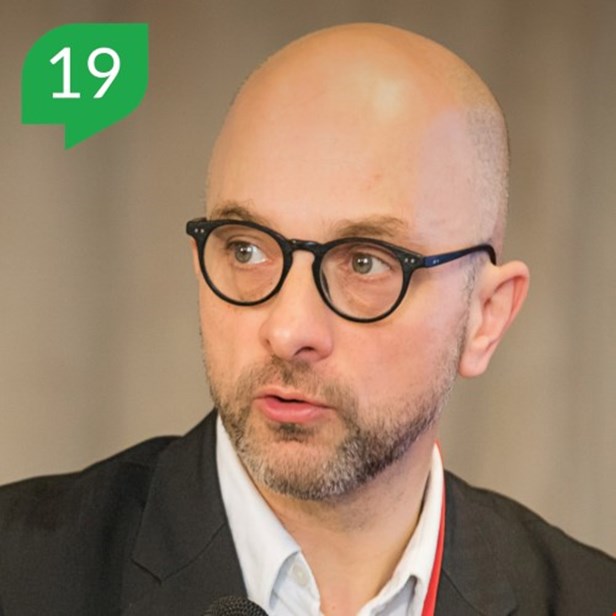EPF Congress 2019: Interview with Usman Khan

This month, we asked Usman Khan – EPF’s incoming Executive Director - a few questions on what to expect from the Congress.
As EPF new Executive Director, could you tell us what led you to join the organisation?
It feels a little surreal for me to bring to mind that I started my PhD in Sheffield, England in 1996. A few decades ago now, still, I vividly remember writing my proposal to assess how users could most effectively become involved in the design, commissioning and delivery of public services. In my career as a manager, academic, consultant and latterly an Association Director, in addition to being a patient and health service user, I have sought to stay true to this path. However, what I might have thought to be so clear in theory, proved oft difficult to achieve in practice. With my appointment at EPF, I have then found myself in the privileged position to be doing a job that I could only have dreamed of back in my student days. I only hope I can do a good job of it!
What expectations and hopes do you have about this unique event?
It will be an honour to come to the EPF Congress as Executive Director and I am very aware of the magnificent efforts of Nicola, Marco, the EPF Secretariat, the Board and our network of partners to put together this great event. We all consequently have high expectations for the Congress, believing that it can first and foremost help to embed patient empowerment within European health policy and practice. But beyond this campaigning message, we also see the Congress as a learning event providing the opportunities for patients, healthcare professionals, managers and educators to learn, share, create and engage.
Why is a different approach to healthcare a must if we want to achieve better outcomes for patients and society?
Well let’s start by not forgetting that modern healthcare has already delivered improvements in life expectancy and well-being that would have been unimaginable a few generations ago. Having said this, it is increasingly becoming apparent that the largely reactive and paternalistic approach to healthcare characteristic of the last century, is no longer fit for purpose as we enter the third decade of the 21st century. Whilst not losing the principles of socialised medicine nor the value of good healthcare organisation and management, we now need to invert that system that served us so well, in order to ensure that it can respond to a more engaged and empowered public and patient community.
How will EPF take forward the outputs and outcomes of the Congress, and what will their impact in the future be?
I really believe our Congress should be seen as part of an ongoing and evolving dialogue, neither a start nor an end point. We have every intention to work our Congress delegates hard, making the event purposeful, engaging and of course enjoyable. We also know that we will be challenged as an organisation, as we look to develop and share learning on effective practice. EPF will be developing its new organisational strategy over the forthcoming period, and the outputs from the Congress will form an important building block for that process.
Which part of the programme are you particularly looking forward to?
Well I have to say “all of it” don’t I? We have a great line up of speakers, who we know will help set the scene, and motivate us all to view healthcare first and foremost through the prism of the patient’s experience. We then have a second day focussed on tailored thematic sessions, which will help to inform and educate participants about a range of themes central to delivering effective patient empowerment. Networking opportunities aplenty including our Congress Gala Dinner, we then bring the Conference to a close on a third day where the focus will be the patient as teacher.
Registrations have just opened. Who should attend and why?
The Congress is a gathering and not just a numbers game. We will be focussed on ensuring that we get space and give voice to all our stakeholders and partners. The patient will of course be front and centre, with representation from condition-focussed groups as well as those representing key demographics, such as older people and underserved communities. But it will be equally important to encourage representation from across health and social care systems, healthcare professionals, health policy makers, regulators and payers, industry and the academic research and teaching community – register today!
